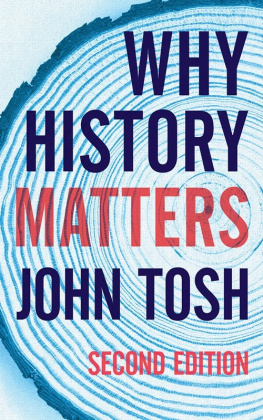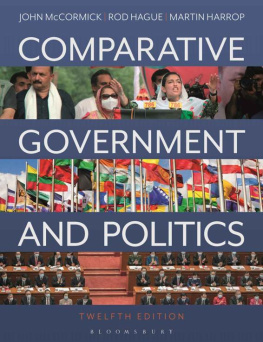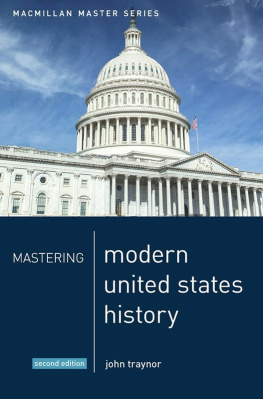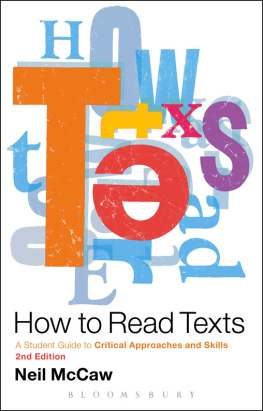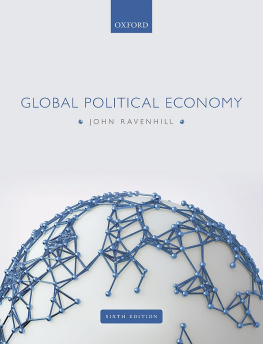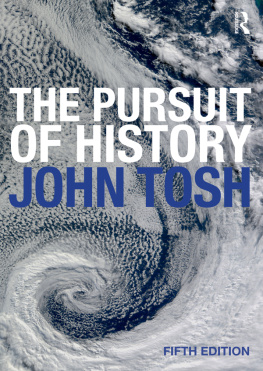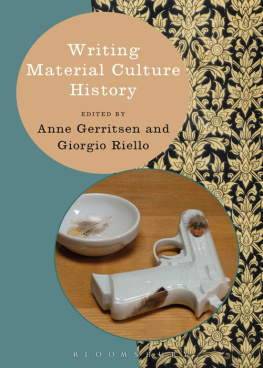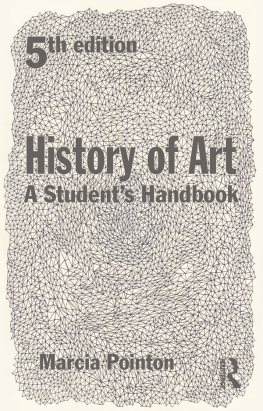WHY HISTORY MATTERS
BY THE SAME AUTHOR:
The Pursuit of History: Aims, Methods and New Directions in the Study of Modern History (6th edn, Routledge, 2015)
A Mans Place: Masculinity and the Middle Class Home in Victorian England (Yale University Press, 1999)
(editor) Historians on History (3rd edn, Routledge, 2018)
Manliness and Masculinities in Nineteenth-Century Britain (Pearson Education, 2005)
WHY HISTORY
MATTERS
2ND EDITION
JOHN TOSH

John Tosh, under exclusive licence to Springer Nature Limited 2008, 2019
All rights reserved. No reproduction, copy or transmission of this publication may be made without written permission.
No portion of this publication may be reproduced, copied or transmitted save with written permission or in accordance with the provisions of the Copyright, Designs and Patents Act 1988, or under the terms of any licence permitting limited copying issued by the Copyright Licensing Agency, Saffron House, 610 Kirby Street, London EC1N 8TS.
Any person who does any unauthorized act in relation to this publication may be liable to criminal prosecution and civil claims for damages.
The author has asserted his right to be identified as the author of this work in accordance with the Copyright, Designs and Patents Act 1988.
This edition published 2019 by
RED GLOBE PRESS
First edition published 2008 under the imprint
PALGRAVE
Red Globe Press in the UK is an imprint of Springer Nature Limited, registered in England, company number 785998, of 4 Crinan Street, London N1 9XW.
Red Globe Press is a registered trademark in the United States, the United Kingdom, Europe and other countries.
ISBN 9781137604101 hardback
ISBN 9781137604071 paperback
This book is printed on paper suitable for recycling and made from fully managed and sustained forest sources. Logging, pulping and manufacturing processes are expected to conform to the environmental regulations of the country of origin.
A catalogue record for this book is available from the British Library.
A catalog record for this book is available from the Library of Congress.
For Caroline
Contents
Preface
Judging by the tenor of political debate and the coverage of the media, most people in Britain think that in a fast-moving world history has little or nothing to offer to a rational public discourse. Time and again, complex policy issues are placed before the public without adequate explanation of how they have come to assume their present shape and without any hint of the possibilities which are disclosed by the record of the past. Historians who should be doing most to correct this view hold back from an overzeal-ous concern to uphold their scholarly integrity. Yet this is a critical dimension of citizenship. To know that the past can illuminate the contours of the present is to be better equipped to make intelligent decisions about difficult public issues. Within Whitehall there is some acknowledgement of that proposition, and its practical consequences have been analysed in a number of studies of the influence of history and historians on policymaking at the highest level. The machinery of government is not my concern. My purpose in this book is to show how a more widespread understanding of historical thinking might bring closer the ideal of the critical citizen.
Making progress in this project requires a reordering of priorities on the part of the schools, the media and historians themselves. Such a programme has been advocated many times in the past. But the present is a particularly auspicious moment for two reasons. First, history is enjoying unprecedented exposure in the public media. It is more securely established in common culture than at any time in the past century, and although the main focus is on entertainment, it nevertheless provides a starting point for a critical engagement between past and present. Second, enough historians are now exploring ways of bringing their knowledge to bear on topical issues through broadcasting and the Internet as well as in print to demonstrate that history potentially has a major public role.
Why History Matters does not put forward a comprehensive rationale for the study of history. I do not explore arguments of an aesthetic, symbolic or spiritual kind. My concern is a practical one: to make the case that history is a critical resource for the active citizen in a representative democracy. I do not believe that this is the only reason for valuing history: if I did, the case for studying medieval and early modern history would be distinctly muted. But the arguments in favour of the practical approach are not often heard, partly because historians tiptoe round the issue of relevance, and partly because the practical yield of academic history is often confused with explicitly political renderings of the past. In fact, history offers two different forms of empowerment. On the one hand, it can be used to intensify the sense of belonging to a group (be it nation or community) by anchoring it securely in shared narratives of the past. On the other hand, it can empower through enhancing the intellectual resources available to the active citizen. In practice this distinction is far from clear-cut, as there is much trading across the boundary. But it nevertheless expresses a significant demarcation: the first tends towards rhetorical confirmation, and the second is about intellectual empowerment. This book explores and evaluates the second function. It identifies the basic features of historical thinking or historical mindedness and shows how they can be applied to contemporary concerns.
This line of argument has important implications for education in citizenship, which has featured in the National Curriculum since 2002. History has long had an acknowledged place in defining the prerequisites of good citizenship, but it is primarily viewed as an adjunct to national identity and the politics of multiculturalism, with the risk that students will be passive consumers of predetermined identities. My contention is that the real value of history lies in equipping young people with a distinctive mode of thinking which can be critically applied to the present. Without such a perspective, they will have a greatly impoverished sense of the possibilities inherent in the present; they will be unlikely to be able to distinguish between what is ephemeral and what is enduring in present circumstances; and the ongoing processes of change unfolding in our own time will be closed to them. These are the essentials of thinking with history, and the following chapters demonstrate their place in the mental equipment of the active, par-ticipating citizen.
Two contested concepts have a bearing on the content of this book: applied history and public history. The first has an equivocal track record, having often been identified with politically driven research or with overly schematic research agendas. However, it is central to the argument of this book that historical knowledge can be usefully applied in ways which are defined neither by politics nor ideology. Applied history refers here to historical knowledge which has been built up in pursuit of academic ends but which also has a bearing on current public concerns. Public history needs careful definition because the term has come to mean so many different things. The common factor is that history is the property of the public rather than academia, in the sense that the laity are the principal audience. Most discussions of public history locate it in heritage sites, museums or the media. In this book I take public history to mean also the work of dissemination which academic historians undertake to place their knowledge at the disposal of the public. This is only one dimension of public history often omitted from standard definitions but it is indispensable for the realisation of a socially responsible applied history.
Next page
